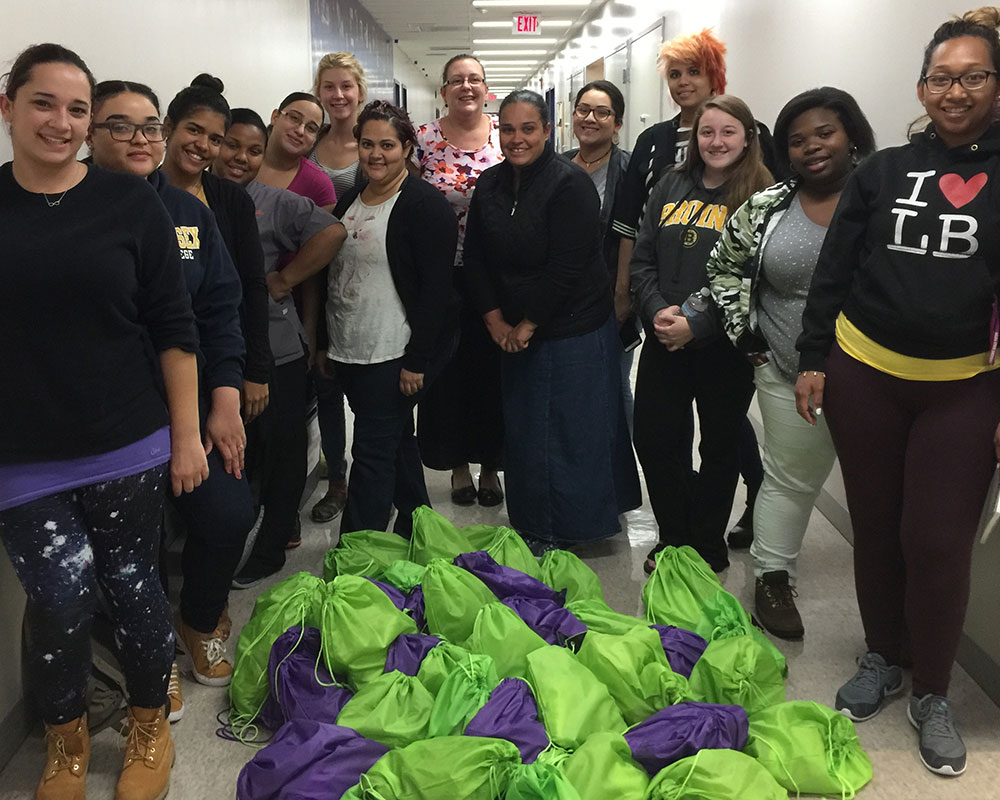Northern Essex Community College students in Professor Doris Buckley’s class partnered with the Merrimack Valley Hope Mission in Haverhill. (Courtesy photograph.)
Northern Essex Community College is launching its first “civic action plan” this fall, aimed at, among other things, contributing to the “economic, social, environmental, educational and political well-being of our communities.”
The plan covers three years and involves placing students into community organizations, adding service learning projects into college courses and seeking out community partners that benefit from skills students bring to the table.
“NECC’s Civic Action plan embraces this vision by preparing our students to be active, informed citizens; by empowering the NECC community to pursue partnerships to benefit local and global communities; and to institutionally contribute to the health and strength of our local communities,” the plan notes.
Volunteer experiences help students apply and interview for jobs and complete transfer application essays. “Students who participate in service can draw from their experiences, and make informed decisions about transfer, major and career choices,” the college said on its website.
Janal D’Agata-Lynch, the college’s civic engagement and service-learning coordinator, has the job of “preparing students for engaged citizenship.” Since she came on campus in 2015, the number of students involved in service learning has risen from 232 in 2015/16 to 382 in 2016/17—a 65 percent increase.
For example, the college partnered with Mitch’s Place, a homeless shelter in Haverhill. Professor Jennifer Jackson-Stevens’ respiratory care students offered COPD screenings, smoking cessation workshops and information on lung health awareness. Professor Cheryl Charest’s medical assisting students bought, cooked and served a meal for residents and conducted a blood pressure clinic after dinner.
The new civic action plan received campus-wide input and was written by D’Agata-Lynch and Professors Steve Russell and Paula Richards.

